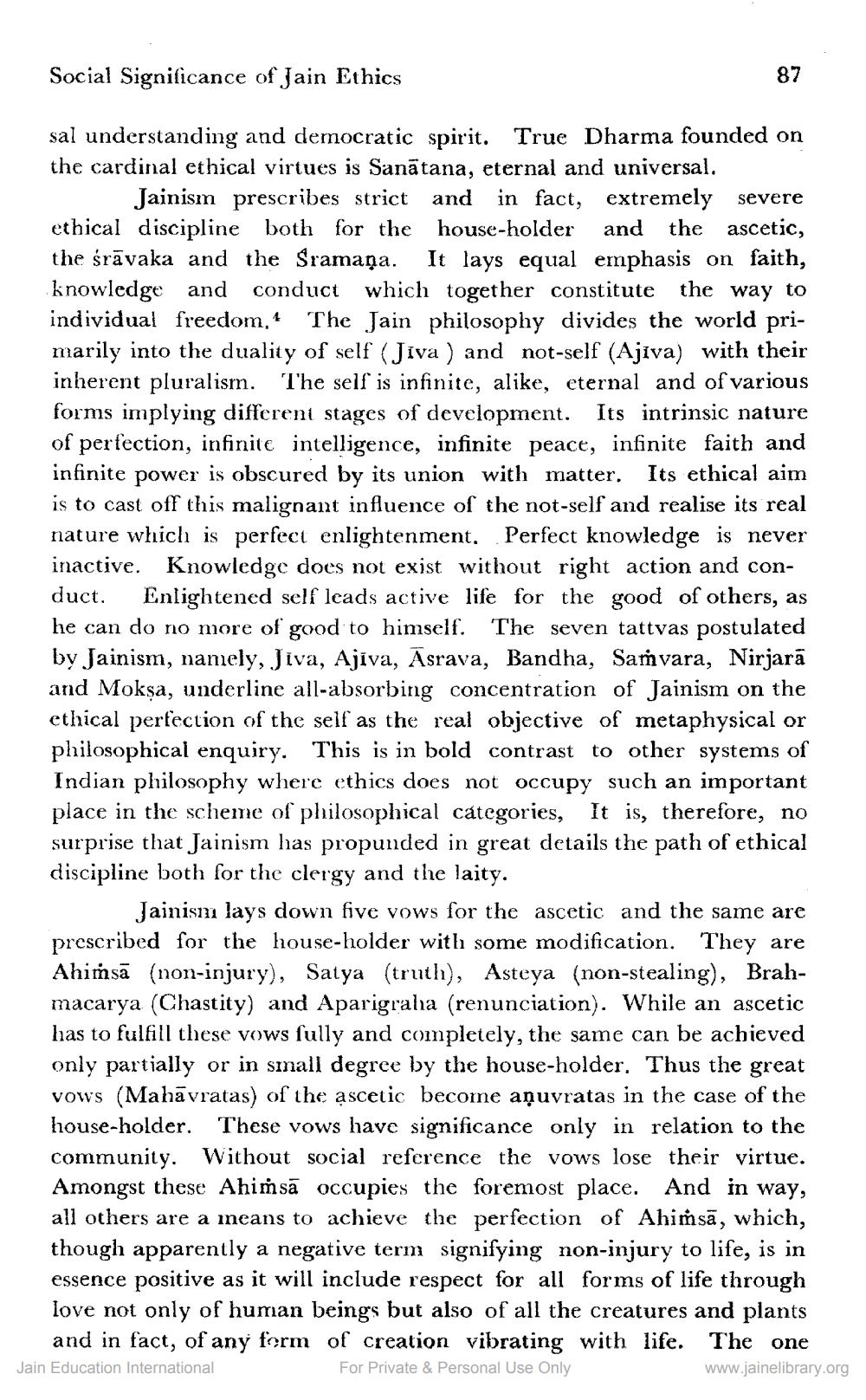________________
Social Significance of Jain Ethics
87
sal understanding and democratic spirit. True Dharma founded on the cardinal ethical virtues is Sanātana, eternal and universal.
Jainism prescribes strict and in fact, extremely severe ethical discipline both for the house-holder and the ascetic, the śrāvaka and the Sramaņa. It lays equal emphasis on faith, knowledge and conduct which together constitute the way to individual freedom. The Jain philosophy divides the world primarily into the duality of self (Jiva ) and not-self (Ajiva) with their inherent pluralism. The self is infinite, alike, eternal and of various forms implying different stages of development. Its intrinsic nature of perfection, infinite intelligence, infinite peace, infinite faith and infinite power is obscured by its union with matter. Its ethical aim is to cast off this malignant influence of the not-self and realise its real nature which is perfect enlightenment. Perfect knowledge is never inactive. Knowledge does not exist without right action and conduct. Enlightened self leads active life for the good of others, as he can do no more of good to himself. The seven tattvas postulated by Jainism, namely, Jiva, Ajiva, Asrava, Bandha, Samvara, Nirjarā and Moksa, underline all-absorbing concentration of Jainism on the ethical perfection of the self as the real objective of metaphysical or philosophical enquiry. This is in bold contrast to other systems of Indian philosophy where ethics does not occupy such an important place in the scheme of philosophical categories, It is, therefore, no surprise that Jainism has propunded in great details the path of ethical discipline both for the clergy and the laity.
Jainism lays down five vows for the ascetic and the same are prescribed for the house-holder with some modification. They are Ahimsā (non-injury), Satya (truth), Asteya (non-stealing), Brahmacarya (Chastity) and Aparigrala (renunciation). While an ascetic has to fulfill these vows fully and completely, the same can be achieved only partially or in small degree by the house-holder. Thus the great vows (Mahāvratas) of the ascetic become aņuvratas in the case of the house-holder. These vows have significance only in relation to the community. Without social reference the vows lose their virtue. Amongst these Ahimsā occupies the foremost place. And in way, all others are a ineans to achieve the perfection of Ahiṁsā, which, though apparently a negative term signifying non-injury to life, is in essence positive as it will include respect for all forms of life through love not only of human beings but also of all the creatures and plants
and in fact, of any form of creation vibrating with life. The one Jain Education International For Private & Personal Use Only
www.jainelibrary.org




